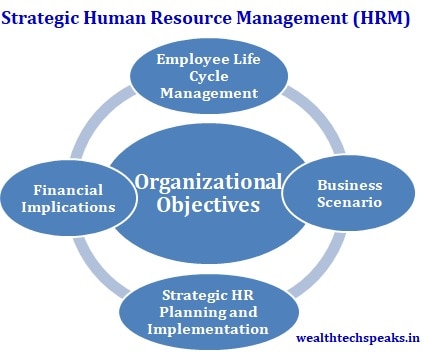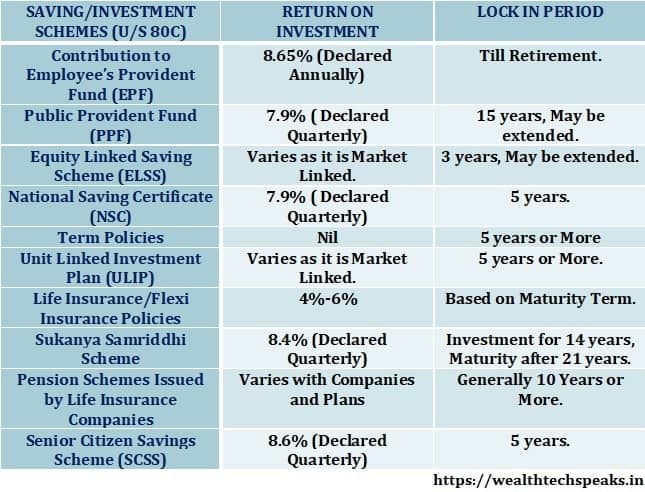
Impact of Artificial Intelligence (AI) on Personal Finance
- Posted By Amritesh
- On August 1st, 2024
- Comments: no responses
Personal finance refers to the management of an individual’s or a household’s financial resources. It involves critical decisions pertaining to earning, expenditure, debts and managing investments in order to achieve financial goals and secure one’s financial future. Personal finance encompasses a wide range of topics including budgeting, saving for emergencies, retirement planning, investing in stocks or real estate, managing debt such as loans and credit cards, insurance, taxes, and estate planning. Effective personal finance management involves understanding financial concepts, setting realistic financial goals, creating and sticking to a budget, regularly monitoring and adjusting one’s financial plan, and making informed decisions about how to use money wisely to achieve desired outcomes.
In the age of information and technology, personal finance is undergoing a profound transformation thanks to the integration of artificial intelligence (AI). AI is no longer limited to science fiction; it has become an integral part of our daily lives, influencing everything from the way we shop to how we manage our money. In this blog post, we will explore the impact of Artificial Intelligence (AI) on personal finance, making it more efficient, accessible, and personalized for individuals around the world.
Understanding Impact of Artificial Intelligence (AI) on Personal Finance
1. Robo-Advisors
Robo-advisors have gained popularity in recent years as a result of AI’s influence on personal finance. These automated investment platforms use AI algorithms to manage and optimize investment portfolios for users. They consider individual financial goals, risk tolerance, and market conditions to make data-driven investment decisions, reducing the need for expensive human financial advisors. Robo-advisors are digital platforms that provide automated, algorithm-driven financial planning services with minimal human supervision. Typically, a client answers questions about their financial situation and future goals through an online survey, and the robo-advisor uses the data to offer advice and/or invest client assets.
2. Fraud Detection and Prevention
AI-powered fraud detection and prevention systems offer significant advantages in identifying and mitigating fraudulent activities across various sectors. By leveraging advanced machine learning techniques, predictive analytics, and behavioral analysis, these systems enhance the ability to detect fraud quickly and accurately. Despite challenges such as data quality and evolving fraud tactics, the benefits of increased efficiency, accuracy, and scalability make AI an invaluable tool in the ongoing fight against fraud.
3. Personalized Financial Planning
Personalized financial planning involves creating a comprehensive financial strategy tailored to an individual’s specific circumstances, goals, and risk tolerance. This approach considers various factors such as income, expenses, debts, investments, and future financial objectives to develop a customized plan that guides financial decisions and actions. Personalized financial planning is a vital tool for achieving financial stability and reaching specific financial goals. By considering an individual’s unique financial situation, risk tolerance, and objectives, a tailored financial plan can provide a clear roadmap for managing finances effectively. Despite challenges, leveraging technology and professional advice can significantly enhance the planning process, ensuring long-term financial well-being.
4. Credit Scoring
AI in credit scoring is transforming how financial institutions evaluate creditworthiness. Traditional credit scoring models rely on static data and predefined criteria, while AI-driven models leverage vast amounts of data and sophisticated algorithms to provide more accurate and dynamic assessments. Personalized financial planning is a vital tool for achieving financial stability and reaching specific financial goals. By considering an individual’s unique financial situation, risk tolerance, and objectives, a tailored financial plan can provide a clear roadmap for managing finances effectively. Despite challenges, leveraging technology and professional advice can significantly enhance the planning process, ensuring long-term financial well-being.
6. Investment Analysis
Artificial Intelligence (AI) is revolutionizing investment analysis by providing sophisticated tools for data analysis, predictive modeling, and decision-making. These technologies enable investors to process vast amounts of data, uncover hidden patterns, and make more informed investment decisions. AI in investment analysis provides significant advantages in terms of accuracy, speed, and data-driven decision-making. It enhances the ability to predict market trends, optimize portfolios, and manage risks effectively. However, challenges such as data quality, model interpretability, and regulatory compliance must be addressed. As AI technology continues to advance, its role in investment analysis is likely to grow, offering even more sophisticated tools and insights to investors.
7. Debt Management
Debt management involves strategies and tools to help individuals and businesses handle their debts effectively. AI is playing an increasingly crucial role in this domain by offering personalized, efficient, and scalable solutions for debt analysis, repayment planning, and risk mitigation. AI in debt management offers significant benefits in terms of efficiency, personalization, and proactive risk management. By leveraging advanced algorithms and data analytics, AI can provide tailored repayment plans, optimize debt collection, and improve overall financial health for borrowers.
Small Savings Schemes Interest Rates: Quarterly Returns
However, challenges related to data privacy, algorithm bias, and integration must be addressed to fully harness the potential of AI in this domain. As AI technology continues to evolve, its role in debt management is likely to expand, offering even more innovative solutions for managing debt effectively.
Harnessing AI in Personal Finance: Benefits, Challenges, and Future Prospects
1. Enhanced Personalization
Tailored Financial Advice: AI algorithms analyze individual financial behaviors, goals, and circumstances to provide personalized recommendations, such as investment strategies, saving plans, and budget adjustments.
Custom Investment Portfolios: Robo-advisors create and manage investment portfolios tailored to an individual’s risk tolerance, financial goals, and time horizon.
2. Improved Efficiency
Automation of Routine Tasks: AI automates repetitive tasks such as bill payments, transaction categorization, and budget tracking, saving time and reducing the risk of human error.
Real-Time Financial Monitoring: AI provides real-time insights and alerts on spending patterns, investment performance, and potential financial risks.
3. Advanced Predictive Analytics
Future Financial Planning: AI can predict future financial needs and outcomes based on current data, helping individuals plan for retirement, education, and other long-term goals.
Risk Management: AI identifies potential financial risks, such as overdrafts or investment losses, allowing for proactive management.
4. Cost Reduction
Lower Fees: Robo-advisors and AI-driven financial tools often charge lower fees compared to traditional financial advisors, making financial advice more accessible to a broader audience.
Efficient Resource Allocation: Automated processes reduce the need for extensive human resources in financial management, leading to cost savings.
5. Data-Driven Decision Making
Informed Choices: AI analyzes vast amounts of data to provide insights that support informed decision-making, whether it’s choosing the right investment or optimizing a budget.
Market Analysis: AI-driven tools can analyze market trends and economic indicators to provide actionable insights for investors.
6. Accessibility
Financial Inclusion: AI-powered financial tools are accessible to a wide range of users, including those who may not have access to traditional financial advisory services.
Educational Resources: Many AI tools offer educational content and resources to help individuals improve their financial literacy.
Challenges involved with advent of AI in Personal Finance
1. Data Privacy and Security Concerns
Sensitive Data Handling: AI systems require access to sensitive personal financial data, raising concerns about data privacy and security.
Cybersecurity Risks: Financial data is a prime target for cyberattacks, and AI systems need robust security measures to protect against breaches.
2. Algorithmic Bias
Fairness and Equality: AI models can perpetuate existing biases in the data, leading to unfair financial advice or credit scoring for certain demographic groups.
Transparency Issues: It can be challenging to understand and explain the decision-making processes of complex AI models, leading to transparency issues.
3. Dependence on Data Quality
Garbage In, Garbage Out: The effectiveness of AI tools depends on the quality of the input data. Inaccurate or incomplete data can lead to flawed recommendations and predictions.
Continuous Data Requirement: AI systems need continuous access to up-to-date data to remain effective, which may not always be feasible.
4. Loss of Human Touch
Lack of Personalized Interaction: Some users may prefer the personal interaction and reassurance provided by human financial advisors, which AI cannot replicate.
Emotional Support: Human advisors can offer emotional support and empathy during financial planning, especially in stressful situations, which AI lacks.
5. Regulatory and Compliance Challenges
Adapting to Regulations: Financial AI tools must comply with various regulations and standards, which can be complex and vary by region.
Ethical Considerations: Ensuring ethical use of AI in personal finance, such as avoiding manipulation or exploitation of users, is critical.
6. Technology Dependence
Reliability Issues: Dependence on AI tools for financial management can be risky if the technology fails or produces errors.
Adaptability: AI systems may struggle to adapt to sudden economic changes or unexpected financial events without significant updates.
Evolving Landscape: Impact of Artificial Intelligence (AI) on Personal Finance
Artificial intelligence is reshaping personal finance by making it more accessible, efficient, and personalized for individuals. From robo-advisors and fraud detection to personalized financial planning and credit scoring, AI is offering new opportunities for individuals to take control of their financial future. As AI continues to advance, we can expect even more innovative solutions that will empower individuals to make informed financial decisions and achieve their financial goals. It’s essential to stay informed and leverage these AI-driven tools to improve your personal finances in this rapidly evolving landscape. AI in personal finance offers numerous benefits, including enhanced personalization, improved efficiency, advanced predictive analytics, cost reduction, data-driven decision making, and increased accessibility.
Understanding Potential of Digital Rupee: Transforming India’s Financial Landscape
However, these advantages come with challenges such as data privacy and security concerns, algorithmic bias, dependence on data quality, loss of human touch, regulatory and compliance challenges, and technology dependence. Balancing the benefits and addressing the demerits is essential for maximizing the potential of AI in personal finance.
Individuals looking to invest in Mutual Funds may connect at admin@wealthtechspeaks.in for investment related guidance.
Do subscribe to our WealthTech Speaks YouTube Channel & also our Blog as it keeps us motivated to post new content. In case you are interested in investing in Stocks, get your free Demat today (Click Here).
WealthTech Speaks or any of its authors are not responsible for any errors or omissions, accuracy, completeness, timeliness or for the results obtained from the use of this information. This article is for informational and promotion purpose only. Readers are advised to research further to have detailed knowledge on the topic. It is very important to do your own analysis and consult your Financial Advisor before arriving at any conclusion.







